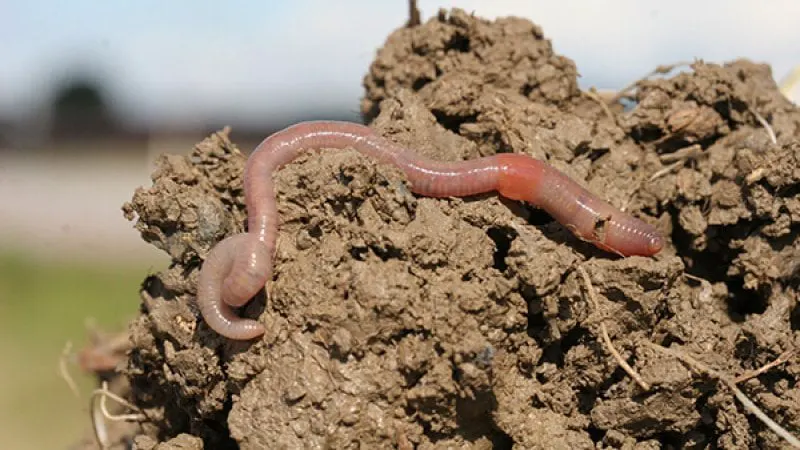New meta-analysis finds Bt crops have no impact on soil biota
New meta-analysis finds Bt crops have no impact on soil biota


The new research provides further weight to the argument that Bt crops, which control pests in a very targeted way using insecticidal proteins (Bt) expressed in plant tissues, protect biodiversity by helping farmers reduce their use of broad-spectrum insecticide sprays.
The study, published in the journal Transgenic Research, is the first systematic review of the effects of genetically modified (GM) crops on soil invertebrates and the first such review to include a quantitative meta-analysis.
“The ongoing debate about the ecological effects of Bt crops calls for thorough reviews about the impact on soil biodiversity and their ecosystem services,” the authors write. “Non-target soil invertebrates are particularly recognized for their contribution to plant nutrient availability and turnover of organic matter and it is therefore relevant to protect these invertebrate taxa.”
To provide protection against pests, researchers insert a gene from Bacillus thuriengensis — a naturally occurring soil bacterium widely used for crop protection in organic agriculture — so the plant expresses a Cry protein that is toxic to certain insects.
Other recent studies have shown that Bt crops do not have harmful effects on beneficial bugs in farmers’ fields. But previous reviews of how Bt crops effect non-target organisms (NTOs) “have not included quantitative effects on soil invertebrates at the species level or complied with principles of systematic reviews,” the authors note.
In response, the authors conducted a systematic review — based on observation data from a number of field studies across a range of environmental conditions — that aimed to provide an unbiased assessment of possible effects of Bt crops on soil invertebrates.
The authors reviewed and analyzed a selection of studies on Protista, nematodes, Collembola, mites, enchytraeids and earthworms to determine whether the abundance of soil invertebrates is changed by Bt crops compared to conventional crops.
“Soil invertebrates are exposed to Bt crops through soil, including soil organic matter, rhizosphere, including root exudates, and roots and litter in and on the soil, and these exposure routes will all be present in field grown Bt crops,” the authors wrote. “Among crucial requirements, we maintained that a comparator must be included, while additional study inclusion criteria were a proper replicated experimental design with a randomized field plot distribution.”
After conducting a thorough literature search and screening out non-relevant reports, researchers found 22 studies suitable for carrying out a meta-analysis. Twenty of these were published in scientific journals and two in meeting proceedings. They represented experiments conducted in 36 locations in 10 countries, primarily using maize and cotton.
“There is considerable variation among soil invertebrate orders, but within orders the sample size was insufficient and the sample heterogeneity too large to draw any credible conclusions on the effect of Cry at the order level,” the authors write. “However, we consider the result of the analysis among order sufficiently credible to conclude that there is no significant effect of Cry on soil invertebrates. These results are expected based on the species specificity of Bt and the mode of action.”
The study was led by Paul Henning Krogh, a senior researcher in the Depatment of Bioscience-Terrestrial Ecology at Aarhus University in Denmark. Co-authors are Kaloyan Kaostov, a research fellow at AgroBioInstitute in Bulgaria and Christian Frølund Damgaard, a bioscience professor at Aarhus University.
Joan Conrow has 35 years of experience as a journalist, editor, and communications consultant. She specializes in environmental issues, biotechnology, and agriculture. Follow her on Twitter @joanconrow
This article ran at Cornell Alliance for Science and has been republished here with permission.Follow the Alliance for Science on Twitter @ScienceAlly

 | Videos | More... |

Video: Nuclear energy will destroy us? Global warming is an existential threat? Chemicals are massacring bees? Donate to the Green Industrial Complex!
 | Bees & Pollinators | More... |

GLP podcast: Science journalism is a mess. Here’s how to fix it

Mosquito massacre: Can we safely tackle malaria with a CRISPR gene drive?

Are we facing an ‘Insect Apocalypse’ caused by ‘intensive, industrial’ farming and agricultural chemicals? The media say yes; Science says ‘no’
 | Infographics | More... |

Infographic: Global regulatory and health research agencies on whether glyphosate causes cancer
 | GMO FAQs | More... |

Why is there controversy over GMO foods but not GMO drugs?

How are GMOs labeled around the world?

How does genetic engineering differ from conventional breeding?
 | GLP Profiles | More... |

Alex Jones: Right-wing conspiracy theorist stokes fear of GMOs, pesticides to sell ‘health supplements’




 California, Washington, Oregon forge immunization alliance to safeguard vaccine access against federal undermining
California, Washington, Oregon forge immunization alliance to safeguard vaccine access against federal undermining Trust issues: What happens when therapists use ChatGPT?
Trust issues: What happens when therapists use ChatGPT? Fighting deforestation with CO2: Biotechnology breakthrough creates sustainable palm oil alternative for cosmetics
Fighting deforestation with CO2: Biotechnology breakthrough creates sustainable palm oil alternative for cosmetics Viewpoint — Fact checking MAHA mythmakers: How wellness influencers and RFK, Jr. undermine American science and health
Viewpoint — Fact checking MAHA mythmakers: How wellness influencers and RFK, Jr. undermine American science and health 30-year-old tomato line shows genetic resistance to devastating virus
30-year-old tomato line shows genetic resistance to devastating virus Viewpoint: Video — Big Solar is gobbling up productive agricultural land and hurting farmers yet providing little energy or sustainabilty gains
Viewpoint: Video — Big Solar is gobbling up productive agricultural land and hurting farmers yet providing little energy or sustainabilty gains The free-range chicken dilemma: Better for birds, but with substantial costs
The free-range chicken dilemma: Better for birds, but with substantial costs ‘You have to treat the brain first’:Rethinking chronic pain with Sanjay Gupta
‘You have to treat the brain first’:Rethinking chronic pain with Sanjay Gupta
